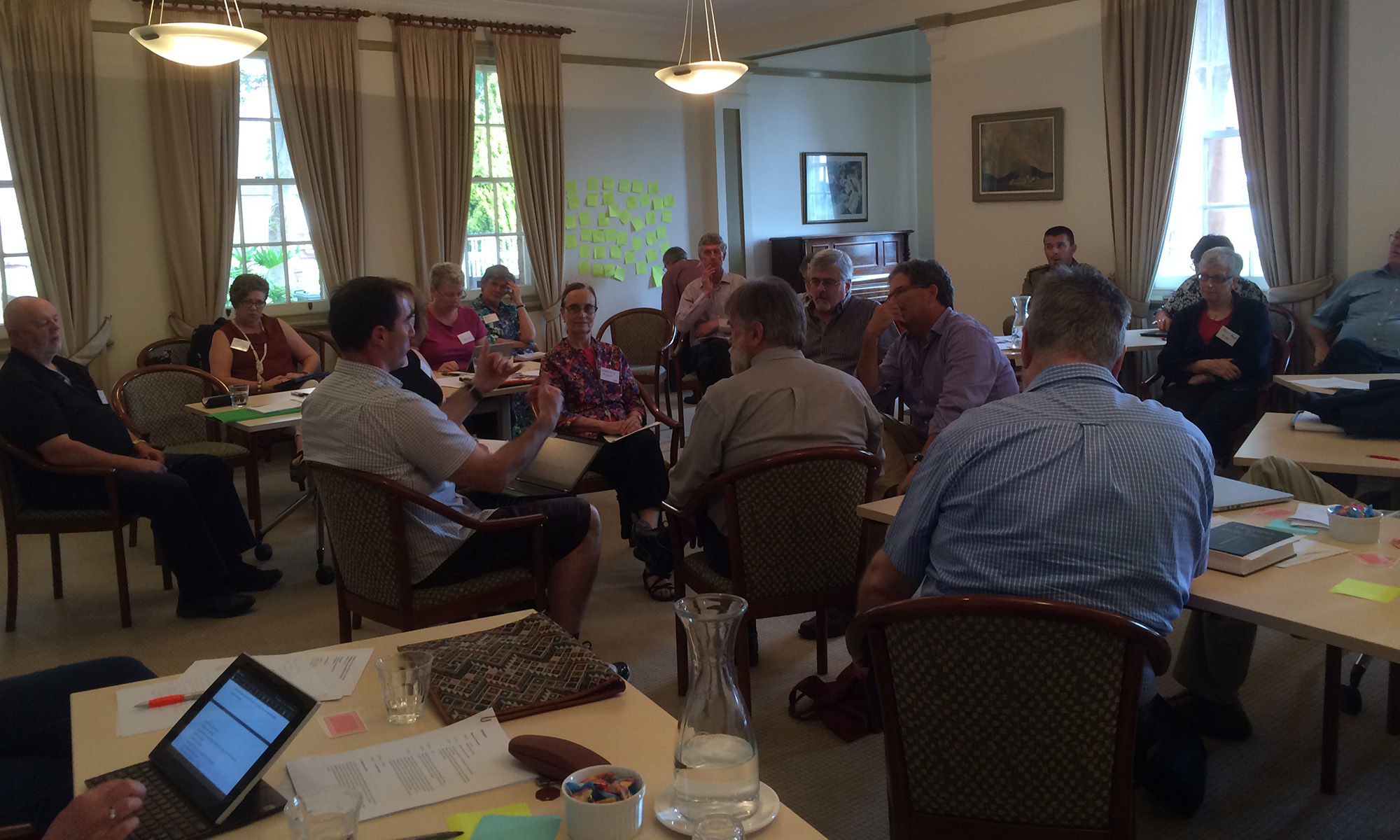I’ve just spent two days in Adelaide meeting with a range of people with a responsibility for education of worship leaders across the Uniting Church in Australia. Hosted by the Assembly Worship Working Group, the symposium was designed to explore the question of quality of worship leadership. Is there a Uniting Church approach to worship? What do we expect from ordained ministers, people in lay pastoral positions, lay leaders? We have Uniting In Worship 2, the book and CD resource largely focused on litanies for use in a wide range of settings. Why do we have such a low usage rate in Uniting Church congregations?
The photo above is of a fish bowl conversation, in which a handful of theological educators engaged in a conversation while the rest of us listened us. Gerard Moore, my colleague at United Theological College, was one of the participants. I enjoyed his thoughts about the contextualisation done in the formation of all of our traditional practices. The more we understand the original engagement in cultural context the more we’re able to discern the best use or letting go of our current customs.
We explored the general competencies in worship leadership set for the Ministry of Pastor by the Ministry Education Committee (thanks Craig Mitchell!). The consensus was that the detailed lists of understandings and skills is somewhat overwhelming to people setting out to be recognised as lay preachers. However, my thought is that the list is helpful for people who want to develop a learning track, on a just-in-time basis.
One of the conversations we had this week was around the different approaches to worship we find in the UCA. We have worship services which are largely contemplative in nature, using quietness, reflective words and maybe music and imagery, to help people go deep in their connection with the divine. We have services that use responsive litanies, lively congregational singing and preaching to stimulate a thoughtful engagement with God and God’s world. We have services that use energetic music and songs of intimacy to mediate an environment in which people discover God’s transformative voice in preaching, teaching and maybe prophetic experience. We have multi-sensory experiences in which people participate in God’s creative engagement with the world. Uniting In Worship as a resource provides for some of these experiences. Some at out gathering this week asked what it might mean to pursue theological and ethical integrity in each of these settings.
See my post on Alternative Worship 101 from 2006 for more on Craig Kennett Miller and Daniel Benedict’s take on this, and some of my thinking on alternative worship.

